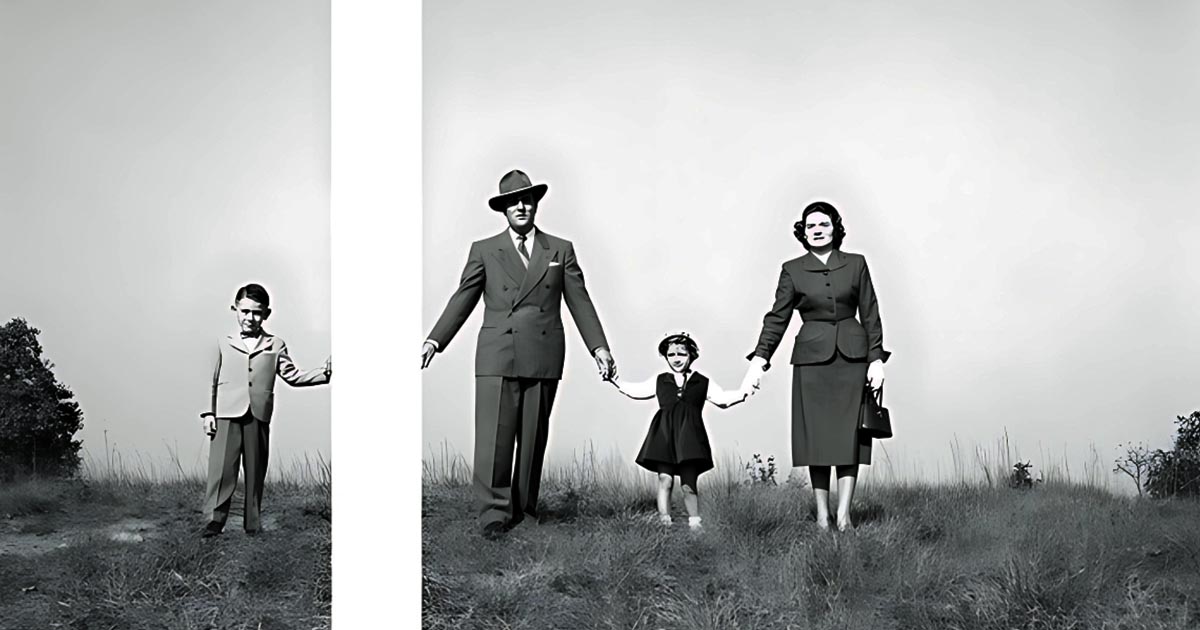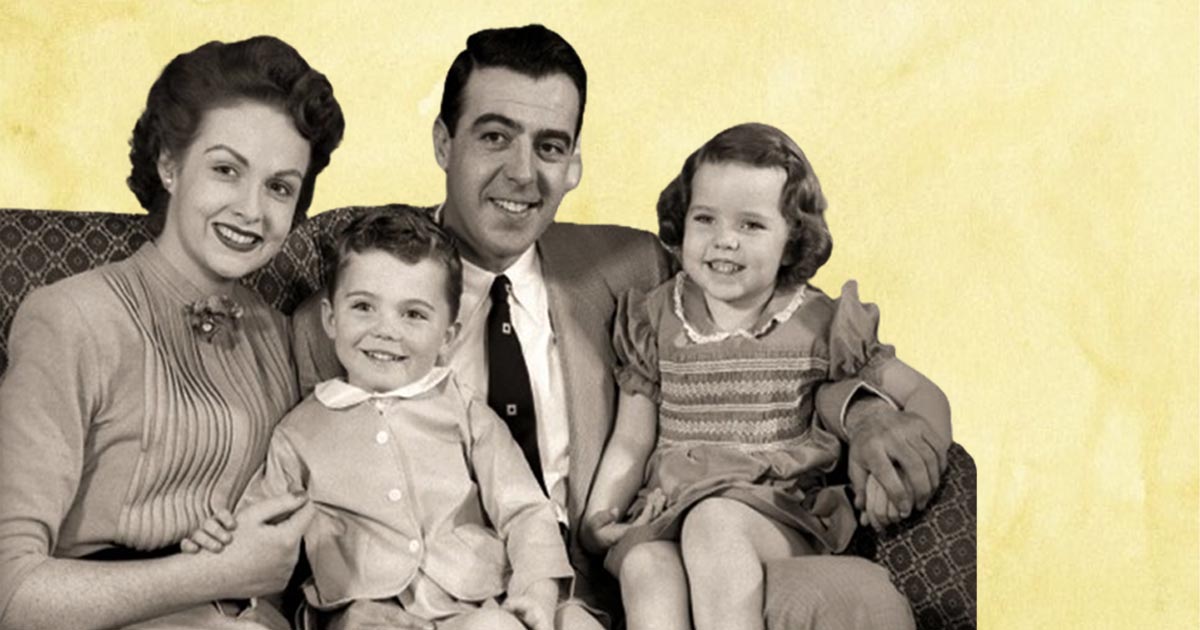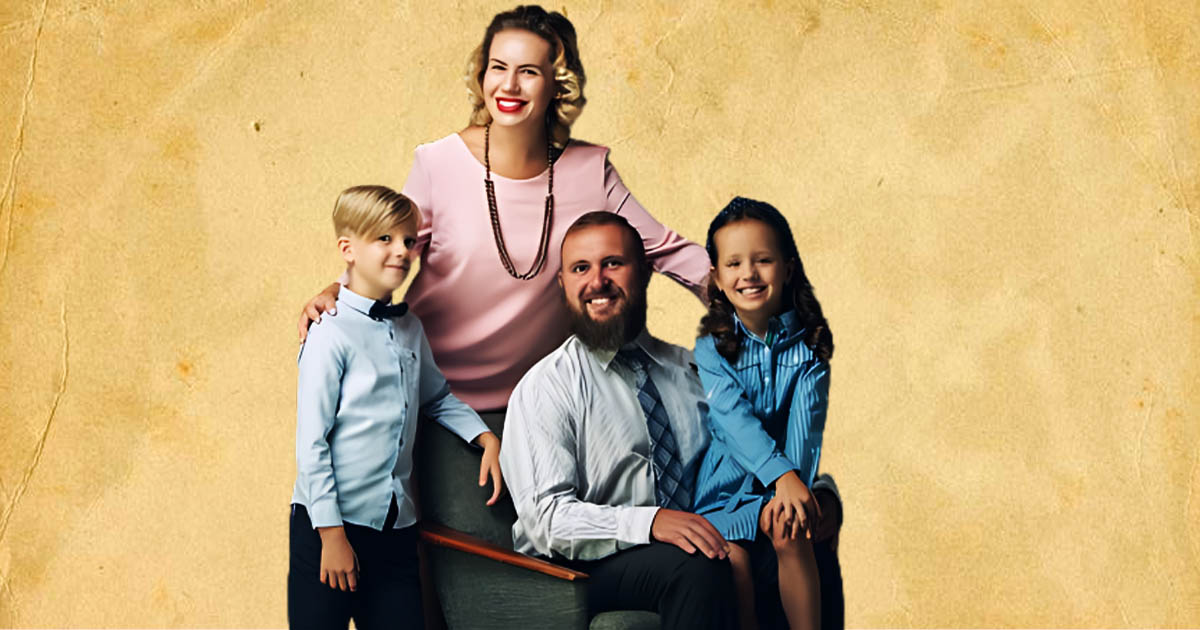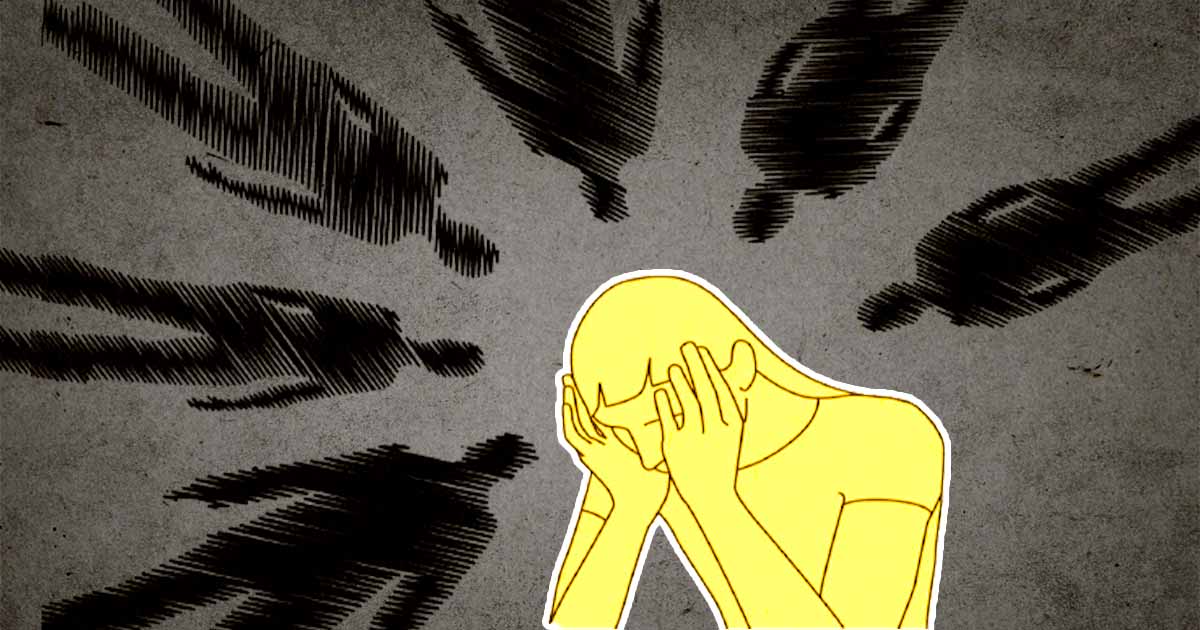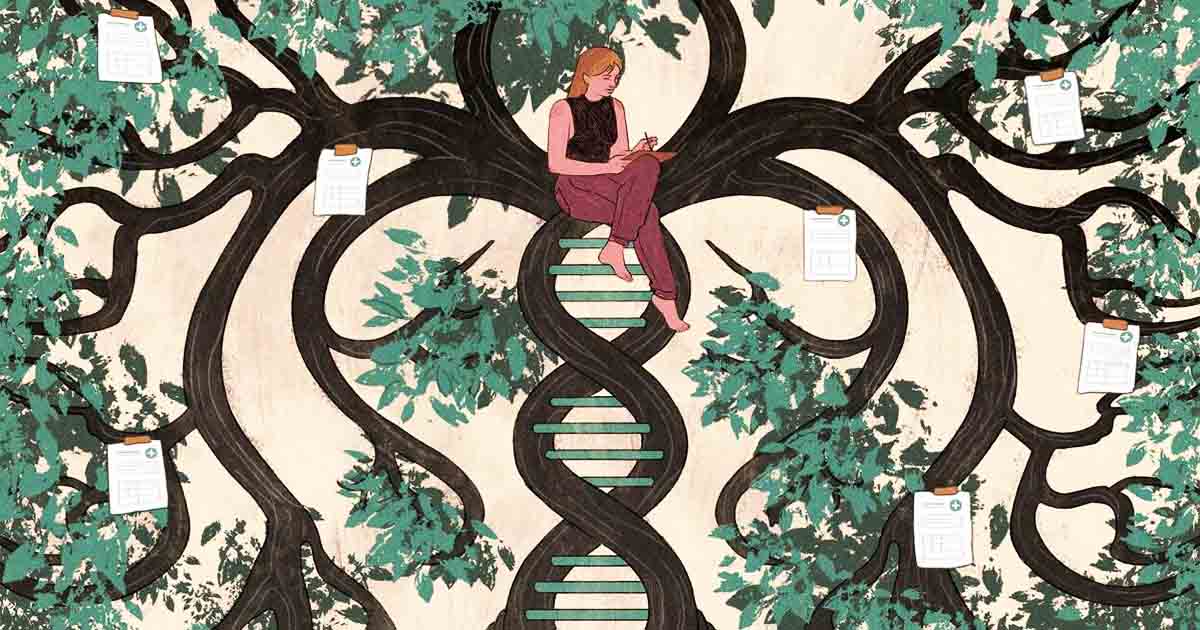Looking at its core, family is widely considered the foundation of our lives because it provides love, support, and a sense of belonging. But what happens when those ties that bind us together are broken or strained to the limit?
Dealing with estranged family members can be like trying to climb a mountain, but not all is doom and gloom.
In this article, we will look at the complex world around family disconnection defining its causes and its profound psychological impacts on people’s individuality. We will look at commonly felt emotions by those in such situations as grief, resentment, and guilt and try to analyze hurdles met when one opts out from the family line.
What Is Family Estrangement?
Family estrangement is when members within a family deliberately or inadvertently separate from one another due to unresolved disputes, differences, or emotional conflicts. It normally takes different shapes such as a cooling-off period, temporary silence, or an absolute and final disconnection between two parties.

Family estrangements begin when at least one person in a family starts creating distance from the other due to many years of being negative towards each other. Although mothers and fathers claim their love for kids is limitless, the truth can be much more complicated, causing grown-up children to abandon one or both parents.
The reasons that make people move further apart are often very painful as well as the process itself of dealing with estranged family members which is anything but pleasant. Most often it happens over time and then all of a sudden catches certain participants unawares.
What Are The Psychological Effects Of Family Estrangement?
Psychologically, family estrangement has far-reaching effects on the persons concerned.

These psychological effects of family estrangement include:
1. Emotional Pain:
Family estrangement is generally associated with a lot of emotional pain for all the parties involved. People may be filled with conflicting emotions such as profound sorrow, extreme rage, excessive guilt, and immense shame.
The breaking of family ties often leaves them feeling as if they have lost something truly significant; this emotional burden becomes a nagging weight on their minds.
Dealing with estranged family necessitates deliberate efforts to manage this array of feelings and find ways to absorb the pain while seeking reconciliation and closure.
2. Low Self-Esteem:
Low self-esteem could become another psychological effect related to family separation whereby it impacts individuals deeply in terms of how much value they place on themselves.
Experiences that result in feelings of inadequacy or unworthiness can be instigated through internalized blame or their perception surrounding any kind of rejection from their families.
A diminished sense of self-worth will permeate into different areas of their lives thereby affecting their confidence levels, self-concept, and ability to express themselves assertively within social interactions and interpersonal relationships.
Regaining self-esteem when dealing with estranged family is often characterized by a voyage towards discovering oneself again, showing compassion for oneself, and developing an independent sense of value divorced from validation by relations.
3. Anxiety and Depression:
Such emotional states as high levels of anxiety and depression are often found when there is a rift in the family since people have to cope with a range of intricate feelings related to this case.
The lack of familial support and the breakdown of once-close bonds can increase sensations of solitude, desolation, and meaninglessness. Chronic fears might result from either despair over separation or constant expectation of further disapproval, while a sense of emptiness and isolation from meaningful relationships may underlie depressed individuals.
After estrangement, people with anxiousness and depression must get professional help, coping mechanisms as well as practicing self-care for their emotional stability.
4. Identity Issues:
An individual’s identity and self-actualization are greatly influenced by his/her family background. When one gets disconnected from his/her relatives, hence experiences identity issues together with not knowing the place where he/she belongs.
When one’s relatives refuse to approve of them, they might start questioning their worth in the world; thereby leading to some kind of existential crisis.
The main issue here is how those expectations differ from personal identity; thus requiring much soul searching, self-examination, and willingness to establish oneself beyond any familial standards or expectations.
While dealing with estranged family you overtime develop identity issues within yourselves.
5. Difficulty in trusting of others:
Family alienation can make one skeptical and wary about deepening social bonds leading to a cautious approach to making new friends.
Betrayal or desertion within the family may make it hard to trust people who have been hurt by this experience. People might self-impose emotional defenses that will prevent them from experiencing authentic and significant relationships, out of fear of rejection or betrayal.
Rebuilding trust after estrangement is a gradual process that requires distinguishing between past wounds and present connections, as well as developing an open nature with others.
The psychological impact of family separation is significant; therefore, therapy and coping strategies are crucial for effective transition. Family Estrangement: A Review of Literature
For these psychological effects of family estrangement, therapy, support groups, and self-care practices are essential to help individuals cope with the emotional effects of estrangement as they heal and grow.
How To Move On From Family Estrangement?
It is a challenging process to get over family estrangement, but it is important for your emotional well-being and personal growth.

Here are some steps on how to move on from family estrangement:
1. Accept Your Emotions:
dealing with estranged family requires you accept the things that has occured and acknoledging the emotions that come afterwards.
Accept that you feel bad concerning the separation. It’s normal to experience mixed feelings comprising sorrow, rage, guilt even relief. You might want to express yourself through journaling, conversation with your trusted friend or therapist or through creative means of expression.
2. Create Personal Limits:
Put up strong barriers to protect one’s self from being emotionally hurt. This may mean reducing contact with alienated members of your family if their presence is harmful in any way to your mental condition and general health. Communicate these limits in an assertive though respectful manner and be ready to take such actions if required.
3. Self-Care Priority:
Make self-care activities that look after you physically, emotionally, and mentally a priority for you right now. These may include doing regular exercises, eating healthy foods mindfully participating in hobbies you enjoy, or looking for therapy or support groups in case of professional support is required during this difficult time.
4. Surround Yourself With Supportive People:
Surround yourself with supportive friends, adopted family members, or co-dependent support groups who understand what happened and can empathize with these experiences of yours. Having a sympathetic listener network helps provide the emotional encouragement needed during the estrangement experience.
5. Dealing With Estranged Family Through Forgiveness:
Think about letting go rather than holding on to those negative emotions for someone else’s benefit other than yourself alone because that will bring peace of mind within you always.
Acceptance can your greatest ally when dealing with estranged family members.
Acceptance does not imply absolving or excusing malicious conduct however relinquishing resentment and bitterness releases one from such burdensome bonds. It requires some time to do it hence may not be possible at all times but can be very empowering and liberating when done purposefully.
6. Do not Ignore Personal Growth
Reflect on personal growth after being estranged from the family; use this knowledge to find resilience, and lessons learned and set goals aligned with your values regarding future aspirations.
Take part in activities that lead to self-development and satisfaction like; going back to school, seeking for new hobby, or working as a volunteer in your society. Dealing with estranged family is journey of self-growth. Remember that!
7. Seek Professional Help if Needed:
Do not wait to contact a psychotherapist, specializing in family pathology and trauma, when you will be experiencing real difficulties in living through the consequences of family severance. You can receive insights, tips for coping with emotional challenges, and support that you need from them.
Healing from one’s past familial relationships is a step-by-step process that necessitates patience, self-compassion, and resilience. You can heal gradually and live beyond the bounds of previous domestic affiliations by focusing on your well-being, creating healthy boundaries around yourself, and asking for assistance whenever there is a need.
A Word From Mind Family
As Mind Family, we are aware of the complex issues and pain that family estrangement can bring about. It may be difficult emotionally but it’s also a time of great personal growth and the development of resilience.
Remember, many others have gone through this too so there isn’t any one answer for all. Just tackle each stage at your pace while keeping in mind your health and well-being as well.
Finally, overcoming family estrangement is an assertion of your autonomy, choosing your way, and embracing a future full of developmental strides, integration, and satisfaction.
You deserve to live a life that reflects your principles and dreams independent from past familial relationships. Be kind to yourself; acknowledge how far you’ve reached; remember that brighter days are ahead. Within you is the ability to go through these experiences stronger than ever before.
Frequently Asked Questions (FAQs)
1. What is family estrangement?
Family estrangement is the intentional or unintentional distancing between family members due to unresolved conflicts or emotional issues, ranging from temporary cooling-off periods to permanent breaks in communication or relationships.
2. What are the psychological effects of family estrangement?
Psychological effects of family estrangement include emotional distress, low self-esteem, anxiety, depression, identity issues, and difficulty trusting others.
3. How to move on from family estrangement?
Learning how to move on from family estrangement involves acknowledging feelings, setting boundaries, prioritizing self-care, seeking supportive relationships, considering forgiveness, focusing on personal growth, and seeking professional help if needed.
